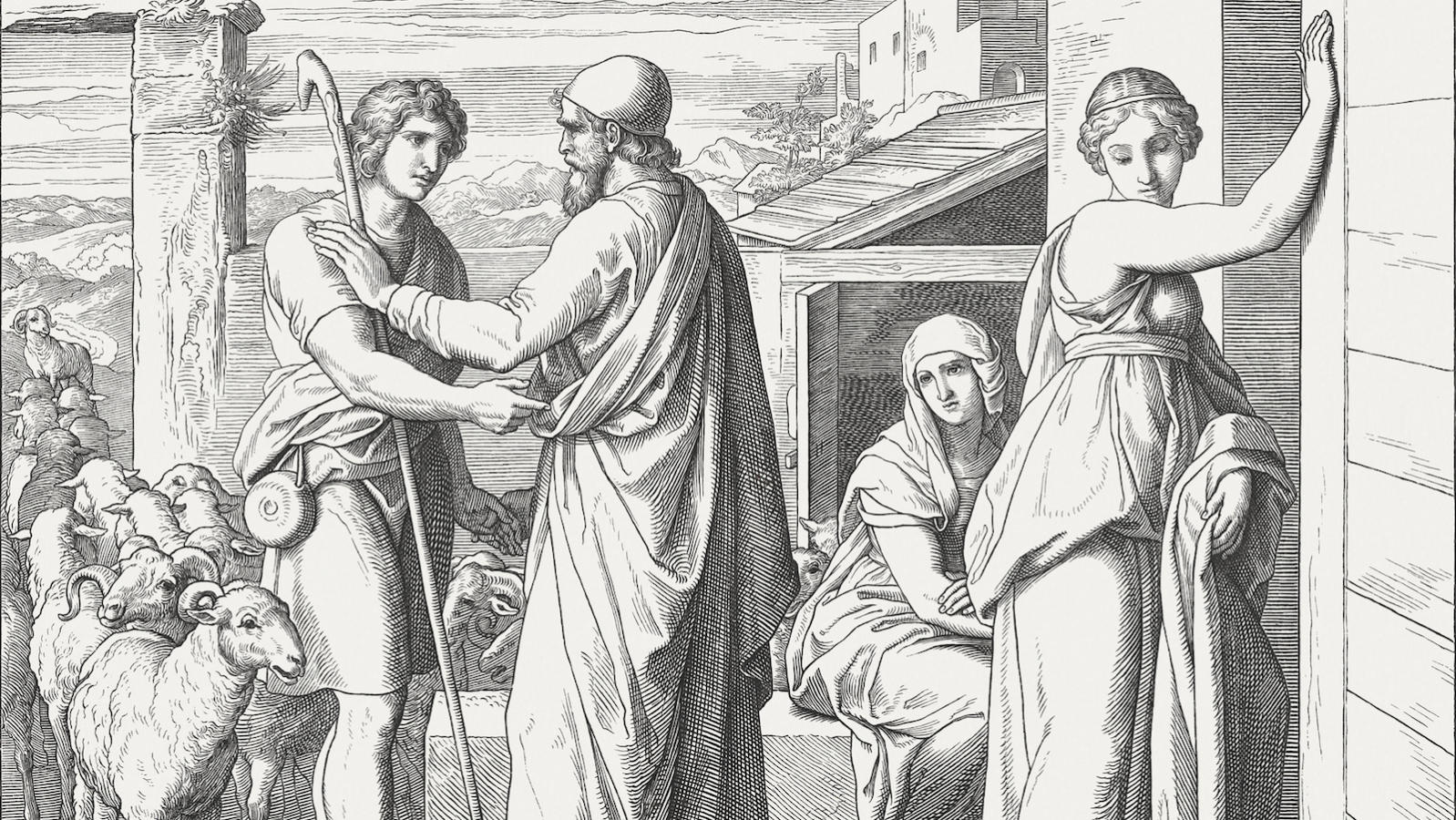Commentary on Parashat Vayetzei, Genesis 28:10-32:3
I cannot read Parashat Vayetzei dispassionately. The struggle between two sisters for the love of the same man, the back-and-forth attempt to win his affections by bearing more and more children, and the visible jealousy and pain that each one of them experiences leaves me feeling angry every time I read the story.
Particularly galling is Jacob’s reaction to Rachel — the wife whom he loves deeply — when she cannot become pregnant. She has seen her sister Leah bear Jacob three sons (presumably within three years), and can no longer take the pain of being the barren wife. “Give me children, or I shall die,” she says to Jacob (Genesis 30:1). And the Torah records his response: “Jacob was incensed at Rachel, and said, ‘Can I take the place of God (“hatahat elohim anokhi“), who has denied you fruit of the womb?'”
The Midrash Rebukes Jacob
Midrash Rabbah (71:7), avoiding any of the apologies later commentators will make, cuts to the chase when it comments:
Said the Holy One, Blessed be God, to him [Jacob]: “Is that a way to answer a woman in distress? By your life, your children will one day stand in supplication before her son [Joseph], who will answer them, “Am I a substitute for God (hatahatelohim ani)?” (Genesis 50:19)
The midrash is acutely sensitive to Rachel’s feelings here and to Jacob’s cruelty in answering her as he did. Yes, she overstated, but her comment reflected how terribly pained and unworthy she felt by not being able to bear children. Jacob just dug the knife in deeper by saying that God had denied her the ability to produce children. The midrash responds that an insensitive comment like this one will not go unpunished, and it doesn’t. In the not too distant future, Jacob’s other sons are at the mercy of Rachel’s son Joseph, when they hear language very close to the cruel words Jacob had spoken. As a rabbinic dictum teaches: “Midah k’neged midah” (one unkind deed will be paid back by another).
With your help, My Jewish Learning can provide endless opportunities for learning, connection and discovery.
Defending Jacob’s Response
But, human beings, as we know, are complex creatures. And of the numerous stories that point out human complexity in the Bible, the stories in the book of Genesis are particularly poignant. While the midrash hones in on Rachel’s pain, the medieval commentator Radak (Rabbi David Kimhi) points out Jacob’s frustration. Speaking in Jacob’s voice, Radak says:
It’s God who denied you, and not I who denied you. Ask that He give you children, because I give you what I am able to give you when I sleep with you. What can I do if you are barren? From God you should request that He open up your womb as He did for your sister. Please — from Him.
For Radak, Jacob’s angry answer is a cry of frustration. He can’t do anything about the situation. It’s beyond his control. He’s doing what he can, but he is a limited human being and can’t produce the miracles that God does.
Radak’s portrayal of Jacob makes his response somewhat more palatable. Though it doesn’t make Jacob’s words kind, it at least gives us a better idea of what he may have been thinking and feeling about Rachel’s cry to him.
They Want What They Can’t Have
Dr. Avivah Gottlieb Zornberg, modern commentator and author of The Beginning of Desire: Reflections on Genesis adds another layer to the mix of emotions felt in this story. She writes:
Jacob is now married to two women: a storm of emotion — hatred, jealousy — replaces the calm harbor of fulfillment. And a profound frustration underlies the relationships between Jacob and his two wives: Leah loves Jacob and names her children as a record of her changing relation to her husband; Jacob loves Rachel, and Rachel’s main passion is for children. Essentially, all the protagonists most want what they cannot have. Therefore, perhaps Jacob speaks out of the anger of a man whose love meets with poor response. On one level, he is simply saying that his life would be amply fed by his relationship with her. Her deprivations are different from his and must inform her own personal relationship with God. (pp.209-210)
Learning from the Relationships of The Bible
Life — and especially love — among human beings is never easy. Though our story is complicated by the fact that two sisters share one husband (something that the Torah later forbids), the truth is that even in monogamous relationships, life is often not simple. We want, sometimes demand, our partners’ devoted sympathy to our pains, and when they can’t help us, it can be deeply painful. The Torah is insightful because it lets us know that families have been struggling with these issues for thousands of years. Perhaps, in some small way, we can better our family lives by seeing the struggles of our ancestors and trying to learn from them.
Provided by the Jewish Theological Seminary, a Conservative rabbinical seminary and university of Jewish studies.
Midrash
Pronounced: MIDD-rash, Origin: Hebrew, the process of interpretation by which the rabbis filled in “gaps” found in the Torah.
Torah
Pronunced: TORE-uh, Origin: Hebrew, the Five Books of Moses.



